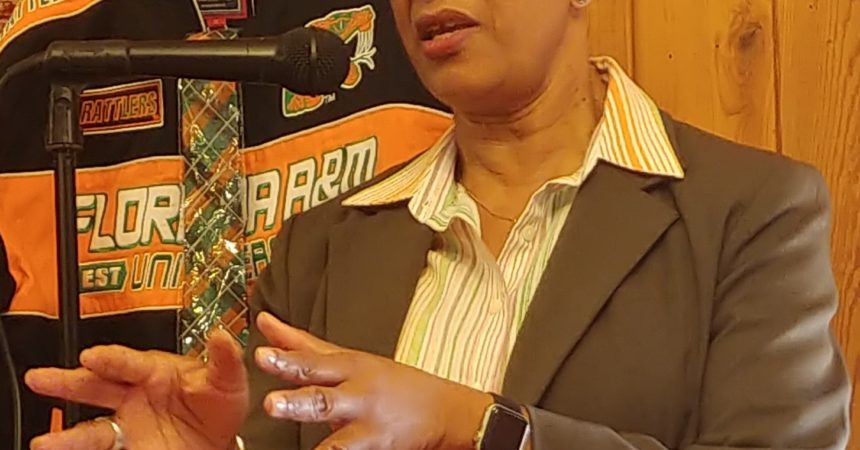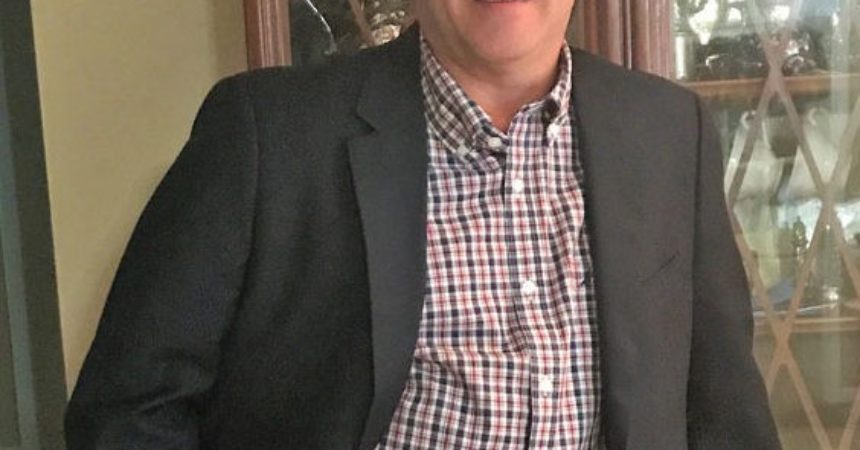Donors’ dollars put two Black incumbents under microscope
By St. Clair Murraine
Outlook staff writer
Heading into the final week before the Aug. 18 primary election, the two incumbents running for City Commission seats find themselves defending their fund raising.
Fund-raising became a focal point of the campaign after a newspaper analysis that spotlighted commissioners Curtis Richardson and Elaine Bryant. Richardson, who has four challengers, has a commanding financial lead. Bryant, who was appointed to her seat in December of 2018, has two opponents, including Jack Porter who tops fundraising in the race.
The article in the Tallahassee Democrat raised ethics concern because of donations from businesses that the city regulates. Neither Bryant nor Richardson has been the subject of an ethics violation.
“I have done nothing illegal, unethical and as they listed, although late in the article, there are many other people running for office that have accepted funds from people that wanted to support them, which is exactly what I did,” Bryant said, adding that the article tried “to paint a picture that when you receive funds from certain types of people that there is something wrong with that.
“Giving is challenging, but more challenging to me is that if all the people they identified, whether they were contractors, developers or whatever, why the story was developed to highlight two African Americans as receiving money as if there was something wrong with that.”
Finance records not only showed the incumbents as being the top fund-raisers but it also revealed a huge gap between the incumbents and their challengers with the exception of Porter. The only other candidate in the Seat 1 race, William Moore, has raised just $1,075.36.
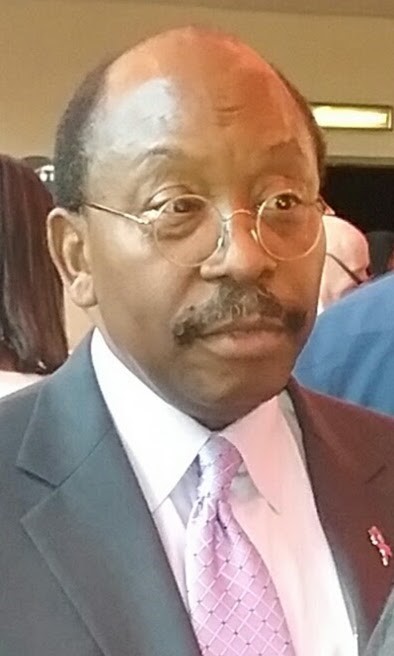
Curtis Richardson has the longest tenure on the City Commission.
Photo by St. Clair Murraine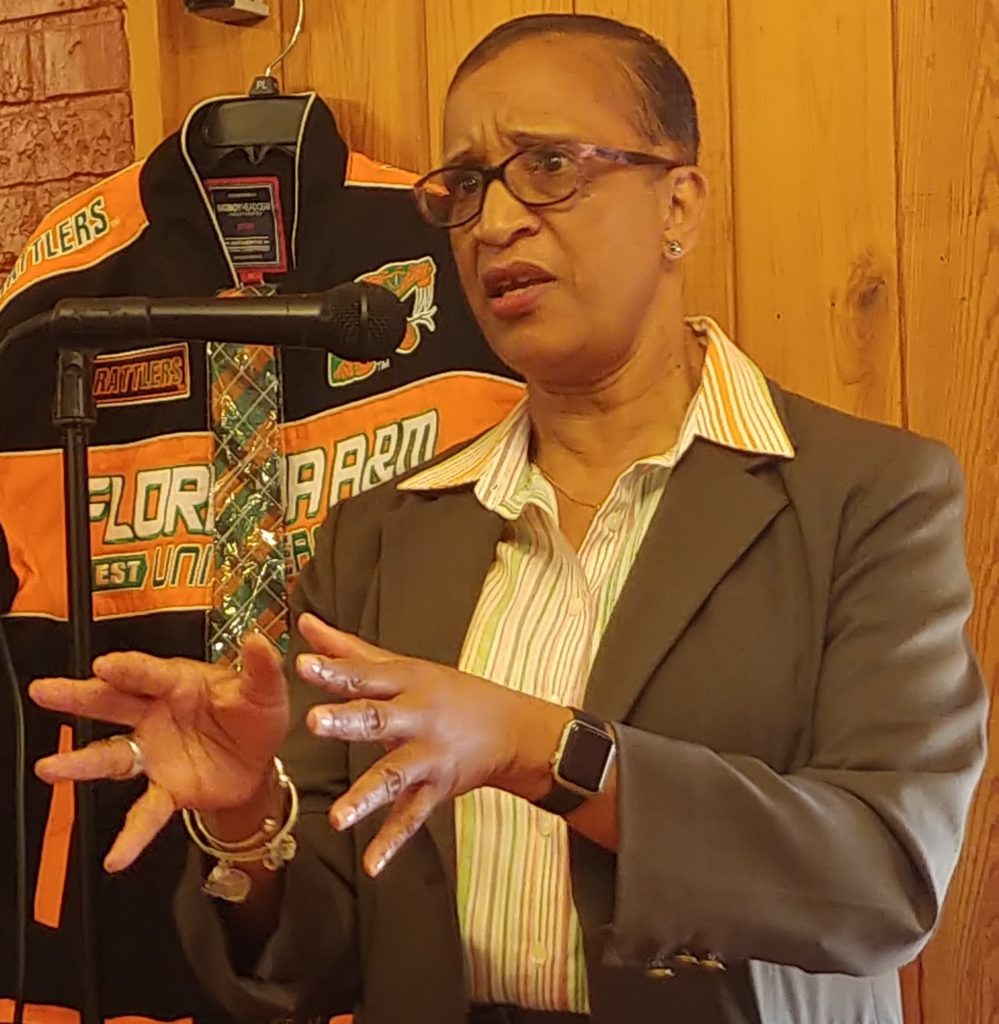
Elaine Bryant is running in this campaign to retain the seat she was appointed to in December 2018.
Photo by St. Clair Murraine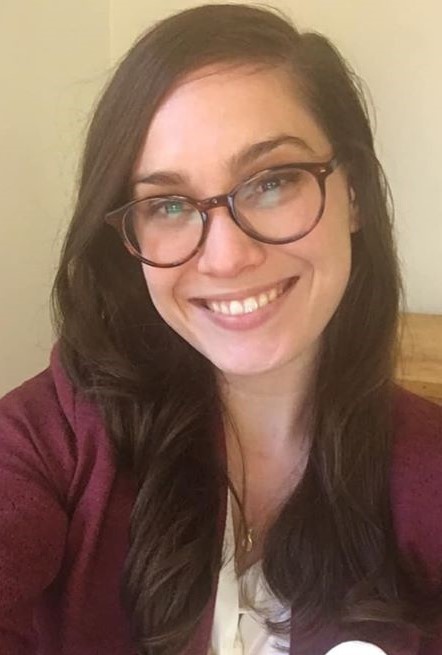
Jack Porters has gotten almost half of her campaign funds from out-of-town donors.
Porter campaign photo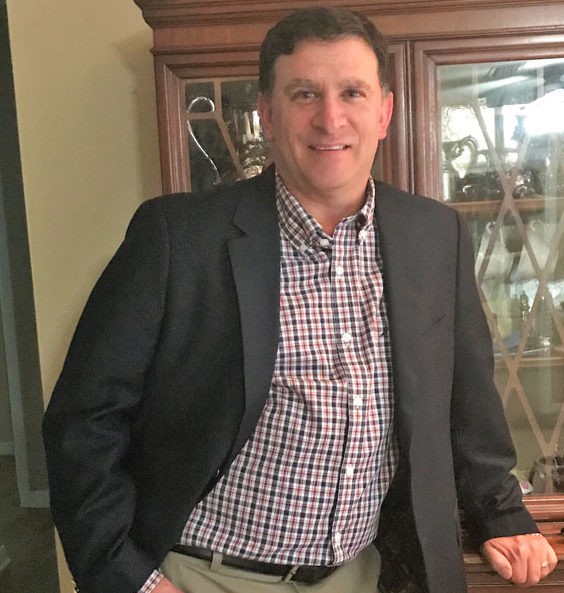
Bill Schack is second in fund raising as he makes a bid to unseat incumbent Curtis Richardson.
Schack campaign photo
Porter’s report shows she took in $79,225.33 to Bryant’s $78,851. Richardson’s haul of $55,020 far outlast Bill Schack’s $6,115.37.
Geraldine Seay is the next closest with $4,760.14. Trish Brown and Lynette Halter have raised less than $2,000 each.
However, the incumbents’ financial support from companies that falls under the umbrella of the Ghazivini family of developers is what’s raising eyebrows. The article also questioned the candidates’ ties to Grow Tallahassee, an organization that advocates growth in the city.
Throughout the article, there are implications that developers have influenced how commissioners voted on development projects.
Both Richardson and Bryant took exception to the references.
“That is an insult to my integrity,” Bryant said.
“I felt that my character and integrity were called into question,” Richardson said. “I’ve been in public office for almost 20 years now and no one could ever say that they traced a vote that I’ve take back to a political contribution.”
Grow Tallahassee also reacted to the article on its Facebook page, posting that it is backing candidates who want to see the city grow.
“Campaign contributions are a constitutionally protected means of supporting candidates who align with your values,” the organization wrote in part. “We will continue to un-apologetically advocate for growth and job creation, and support community leaders that want to see Tallahassee grow and reach its full potential.”
Meanwhile, there was little mention of other candidates’ fundraising until late in the article. Richardson said that reference to Leon County Commission incumbent Bryan Desloge was added in a second version of the article after he complained about what seemed like singling out of two Black candidates.
Nonetheless the bundling of donations that total thousands of dollars has caused the buzz.
Schack, whose biggest month of fund-raising brought in $1,695.57, said “The incumbents generally do better at fund-raising because they are usually the ones that big businesses tend to support.”
“That’s part of the problem and that’s how I see it as an issue and something that I not only brought up in 2018 but I’m bringing up again,” Schack said. “This isn’t just this race. This has been for many, many years that you can see that plain as day.”
Of note is $5,000 that Richardson received from entities affiliated to the Ghazivinis. Donations in the amount of $4,750 from the family to Bryant were also highlighted.
There has also been some bundling of donations in Porter’s financial report. While she doesn’t show any major donations from developers, several businesses have given to her campaign.
Most of her donations come from individuals, some giving less than $5.
“I’m proud of the more than 1,000 individual contributions we have received from people who want positive change at City Hall,” Porter said in an email response to questions about her campaign finances. “The overwhelming majority is small donations from Tallahassee residents, and that reflects the grassroots approach of our campaign.
“Our campaign has not solicited contributions from city vendors or developers with business pending before the Commission, and I think that’s an important distinction.”
Porter alluded to corruption charges against former commissioner Scott Maddox, whose seat Bryant was appointed to fill.
“As we rebuild the public trust at City Hall, we need to ensure that commissioners’ decision-making process is not unduly influenced by heavy contributions by parties with an interest in contracts or ongoing projects.”
Since Porter launched her campaign last fall, she’s also gotten huge support from out-of-town donor to the tune of about 35 percent of her funds. Notably among her out-of-state financial backers are her parents, John and Barbara Porter.
Each of her parents donated the cap of $250 and From House to House, a church founded by her parents, also gave $250.
Most of the $79,225.33 that Porter raised came from individual donors. Her total as of last Sunday included two loans of $10,000 each.
Despite a $250 cap, a legal loophole exists where vendors who do business with the city can make donations. Individuals who work for those vendors can also contribute.
That practice has been concerning to political observers like Keith Simmonds, a political science professor at FAMU. He suggested that the current limits on fundraising should be changed for a system that involuntary makes every voter a financial contributor.
A policy should be in place to make sure that companies can’t manipulate the cap of $250, he said.
“It would help to reduce the amount of private financing of our campaigns,” Simmonds said. “There should be strict limits across the board.”



